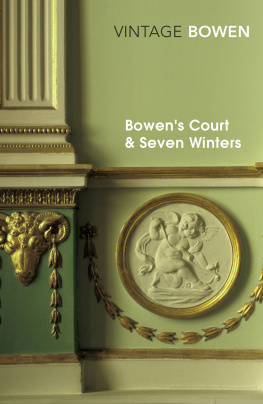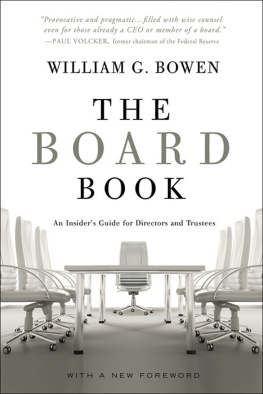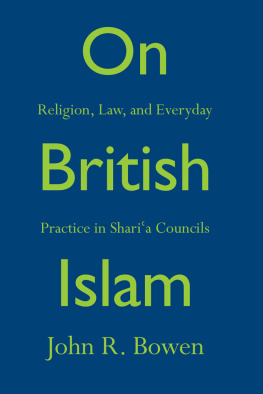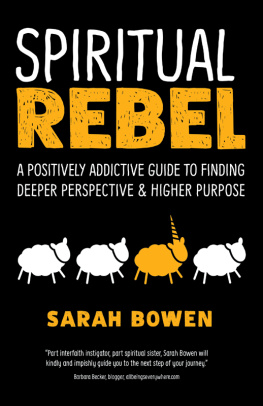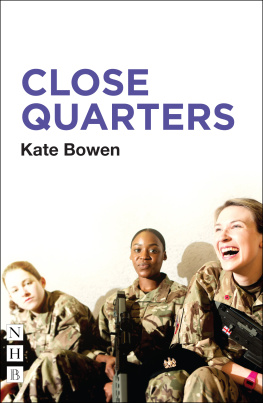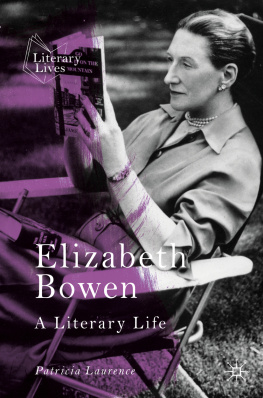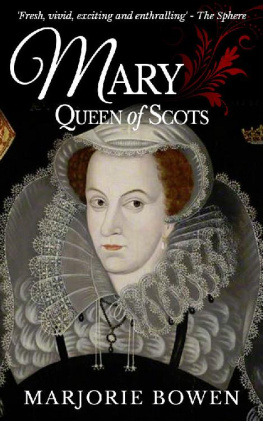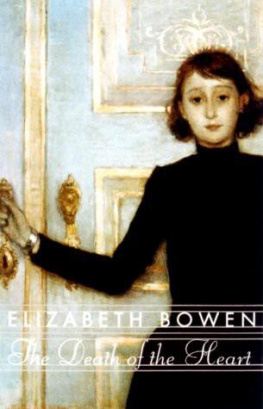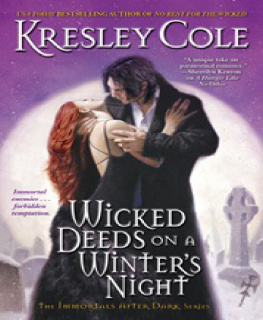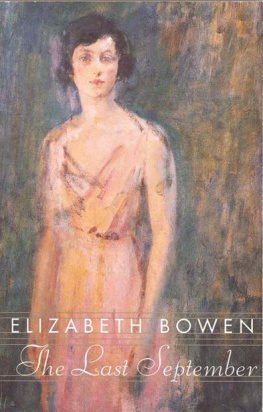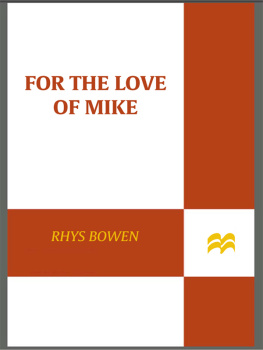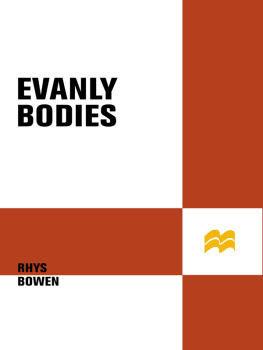Elizabeth Bowen
B OWENS C OURT
&
S EVEN W INTERS
Memories of a Dublin Childhood
INTRODUCED BY
Hermione Lee
This ebook is copyright material and must not be copied, reproduced, transferred, distributed, leased, licensed or publicly performed or used in any way except as specifically permitted in writing by the publishers, as allowed under the terms and conditions under which it was purchased or as strictly permitted by applicable copyright law. Any unauthorized distribution or use of this text may be a direct infringement of the authors and publishers rights and those responsible may be liable in law accordingly.
Epub ISBN 9781446496985
Version 1.0
2 4 6 8 10 9 7 5 3
Vintage
20 Vauxhall Bridge Road,
London SW1V 2SA
Vintage is part of the Penguin Random House group of companies whose addresses can be found at
global.penguinrandomhouse.com
Bowens Court Copyright Elizabeth Bowen 1942, 1964
Seven Winters Copyright Elizabeth Bowen 1943
Introduction Copyright Hermione Lee 1984
Cover illustration Michael Jenner/Alamy
First published by Vintage in 1999
(First published in Great Britain by Longmans, Green and Co. Ltd in 1942)
www.vintage-books.co.uk
A CIP catalogue record for this book is available from the British Library
C ONTENTS
S EVEN W INTERS
Memories of a Dublin Childhood
About the Author

Elizabeth Dorothea Cole Bowen was born in 1899, the only child of Protestant Anglo-Irish parents. She grew up in Dublin and at her family house in Cork, Bowens Court. When she was seven, her father, a lawyer, had a nervous breakdown, and she and her mother went to live with Anglo-Irish relatives in Kent. Her father recovered in 1911, but in 1912 her mother died of cancer. Bitha was then looked after by her mothers sisters and went briefly to art school in 1919 and began to write stories when she was nineteen. In 1923 her first volume of stories, Encounters, was published, and she married Alan Cameron, who was working for the Ministry of Education in Northampton. In 1925 they moved to Oxford, and ten years later, when Cameron was made Secretary to the BBC School of Broadcasting Council, to London, where they lived (with long visits to Bowens Court) until 1951. Her house was a centre of literary life, and, in addition to her writing, she was involved in war work for the Ministry of Information and, after the war, in lecturing, broadcasting and British Council tours. In 1952 Alan Cameron died. Elizabeth Bowen lived at Bowens Court until 1959, when, for want of money, the house was sold and soon after demolished. Throughout the fifties and sixties she was writer in residence at several American Universities. When in England she lived in Oxford, and from 1964 until her last illness, in Hythe. Elizabeth Bowen died in 1973.
Her first book, a collection of short stories, Encounters, appeared in 1923, followed by another, Ann Lees, in 1926. The Hotel (1927) was her first novel, and was followed by The Last September (1929), Joining Charles (1929), another book of short stories, Friends and Relations (1931), To the North (1932), The Cat Jumps (short stories, 1934), The House in Paris (1935), The Death of the Heart (1938), Look at All Those Roses (short stories, 1941), The Demon Lover (short stories, 1945), The Heat of the Day (1949), Collected Impressions (essays, 1950), The Shelbourne (1951), A World of Love (1955), A Time in Rome (1960), After-thought (essays, 1962), The Little Girls (1964), A Day in the Dark (1965) and her last book, Eva Trout (1969).
She was awarded the CBE in 1948, and received the honorary degree of Doctor of Letters from Trinity College, Dublin, in 1949 and from Oxford University in 1956. In the same year she was appointed Lacy Martin Donnelly Fellow at Bryn Mawr College in the United States. In 1965 she was made a Companion of Literature by the Royal Society of Literature.
ALSO BY ELIZABETH BOWEN
Encounters
Ann Lees
The Hotel
The Last September
Joining Charles
Friends and Relations
To the North
The Cat Jumps
The House in Paris
The Death of the Heart
Look at All Those Roses
The Demon Lover
The Heat of the Day
Collected Impressions
The Shelbourne
A World of Love
A Time in Rome
After-thought
The Little Girls
A Day in the Dark
Eva Trout

LIST OF ILLUSTRATIONS
INTRODUCTION
Bowens Court and Seven Winters both first published in 1942 tell the story of a middle-class Protestant Anglo-Irish family and of an only childhood in Dublin and County Cork. They were both written in war-time London, and, like the heroine of Elizabeth Bowens story The Happy Autumn Fields (1944) they look back from an anaesthetized and bewildered present to a lost stability and innocence. But the nostalgia of these two books, one a long family history and the other a short personal memoir, is tempered by a satirical distance. This mixture of romantic, elegiac feeling and dry comedy is typical of all Elizabeth Bowens writing, and typically Anglo-Irish in its ambivalence.
In Elizabeth Bowens case, Anglo-Irish peculiarities were accentuated by an early transplantation into a different mythology. Because of her fathers breakdown, she and her mother moved from the darkening Georgian facades of Dublin and the classical impersonality of the Big House to the dramatic coastline and the exuberant late-Victorian villas of Kent. This cleft between heredity and environment, compounded by the unsteadying effects of her fathers illness and her mothers sudden early death, produced an especially acute version of the Anglo-Irish contradictions: theatrical bravado and alienation, pride of property and sense of deracination, repining and self-parody. What she says about the Anglo-Irish (in Bowens Court and in the autobiographical sketch Pictures and Conversations) applies to her own life:
The existences of Anglo-Irish people like those of only children, are singular, independent, and secretive.
To most of the rest of the world we are semi-strangers, for whom existence has something of the trance-like quality of a spectacle.

